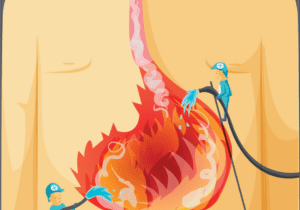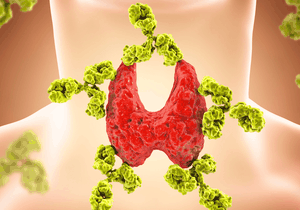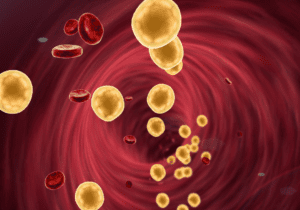Hashimoto… Food for Thought
The phone rang urgently as I unlocked the entrance door to the clinic that morning. Running to pick up the receiver in the dark, I stumbled over a box and almost fell but made it just before the answering machine picked up. “Hello?” before the caller could speak I quickly added “Dr. Malek’s office, may I help you?” The female voice on the other end sounded weary, “I don’t know, I haven’t felt good since my son was born and nobody can figure out why. I feel jittery and tired, some days my heart races, and some days I can’t get myself out of bed. Can you help me?” Sound familiar?
It seems as though there is an epidemic of thyroid disease out there, most of which are treated with some form of synthetic T4 and sometimes synthetic T3. Although that has value for some forms of hypothyroid, it is certainly not enough for the autoimmune scenario known as Hashimoto’s Thyroiditis.
Let’s hash the subject of Hashimoto. The thyroid is a gland that sits at the base of your neck and whose main purpose is to regulate your metabolism. It does so by producing the hormones thyroxin (T4) and triiodothyronine (T3). Most of the hormone production of the thyroid is T4 and very little is T3. T3 is the active form of thyroid hormone and is converted in the liver from T4 when we need it. In Hashimoto’s, the thyroid’s production of hormone may be normal, but the immune system attacks it as though it was a foreign object and goes on the defensive against the enzyme that fuels the production of thyroid hormone as well as the thyroid cells. Much like any other autoimmune disease such as rheumatoid arthritis, Hashimoto’s is a problem of mistaken identity. The immune system mistakenly identifies the thyroid as the enemy. When the attack begins and cells are destroyed, thyroid hormone floods the circulation and triggers a hyperthyroid reaction. Symptoms may include palpitations, sweating, nervousness, jitteriness, and in some instances weight loss without trying. As the deluge of thyroid hormone slows down, and the cells die, the symptoms swing more hypothyroid and include fatigue, weight gain, constipation, and hair loss among many others.
Why would the immune system do this? There have been many possibilities put forward, bad genes, being female, getting pregnant, iodine excess, and radiation. Rarely does anyone mention intestinal permeability also known as leaky gut. “What?” you cry “My gut is a colander?” Essentially yes, it probably is. The ubiquitous gluten molecule found in grains such as wheat, rye, and spelt, is a major trigger. That means pizza, pasta, and bread, what a calamity! Gluten, a relatively recent addition to our diet, is instrumental in damaging the lining of the gut and allowing molecules to access the circulation that do not belong there. Since the immune system’s job is to defend against such likelihood, it jumps into action and goes for the kill. The only problem is that the kill may not be a bug, but a protein molecule that looks somewhat like us, the result? The primed immune system goes after us.
How do you know if you have Hashimoto’s? A simple antibody test will tell. Be careful though, you may get a false negative if you have been on a gluten-free diet for a while. Once diagnosed, changing your diet as well as eliminating gluten can help slow the progress of the disease. Certain nutrients have also been shown to improve the outcome and manage the condition. If left untreated Hashimoto’s can have some nasty repercussions, such as miscarriages and birth defects. If you don’t feel well check it out, it is possible to live a healthy life when properly supported.















